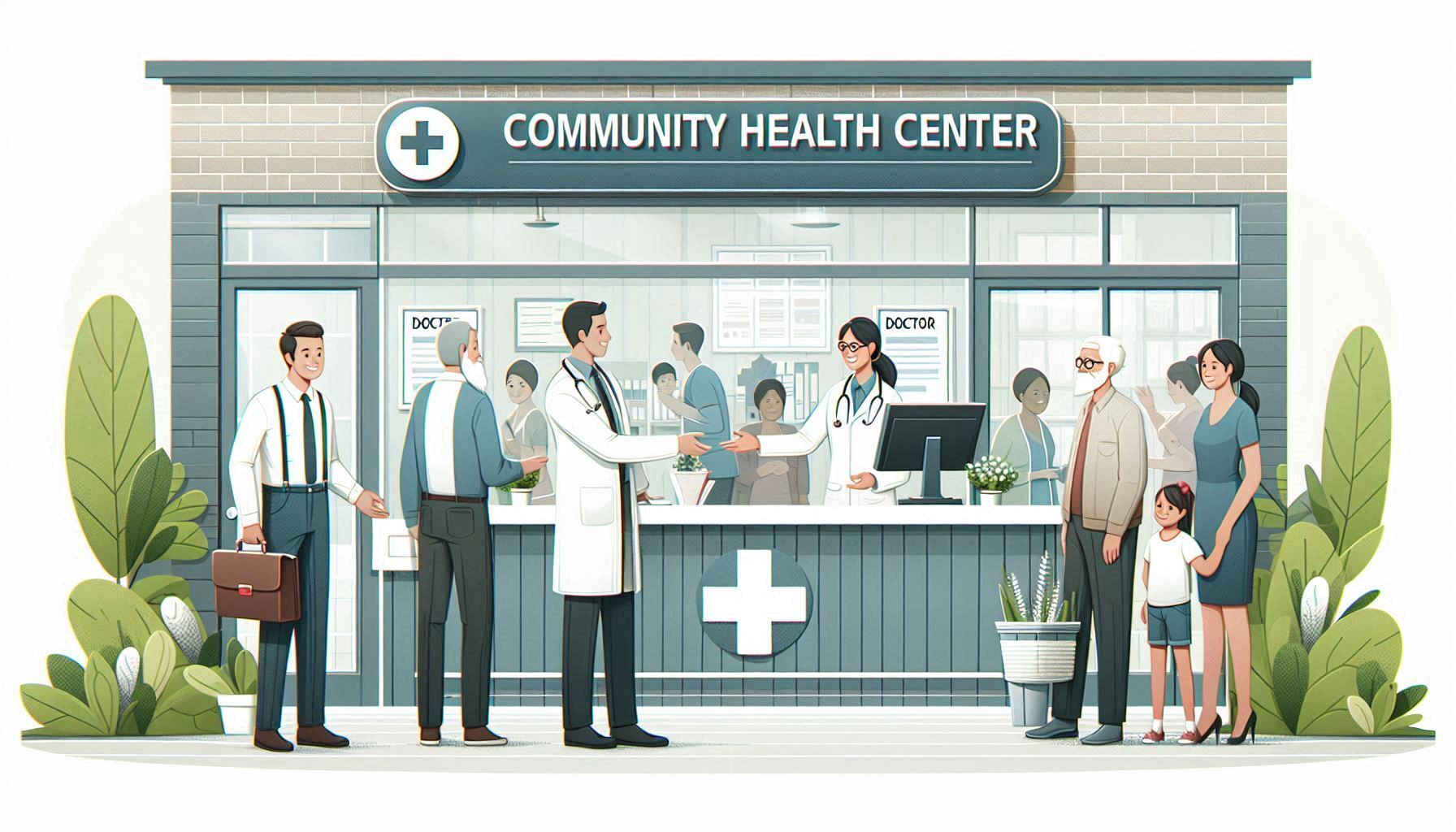The Impact of the AI Evolution on Community Health Centers

Community health centers are an integral part of the healthcare delivery system, especially in underserved communities. One of the biggest limitations providers face is time, as the workforce shortages not only continue but have accelerated after the COVID 19 pandemic this challenge is exponential. With high numbers of patients and increasing workloads leading to provider and staff burnout community health centers are looking for ways to provide efficiency and better experiences for their organization to improve retention.
Like all areas of healthcare, community health centers can significantly benefit from adopting artificial intelligence (AI) solutions to improve care delivery, enhance patient experiences, and address the limitations of humans in accessing data and information that can guide care.
Enhancing Patient Care Through AI in Community Health Centers
In the United States alone, over 1,400 community health centers serve more than 30 million underserved patients each and every year with that number growing. These patients count on their health centers to provide a positive and holistic patient experience through high quality multispecialty care. Much of their funding is driven by nationwide health initiatives who have set benchmarks to ensure improved health outcome and focuses on social determinants of health.
Although there are an endless amount of use cases for AI in community health centers here are a few to consider given their maturity and impact:
Streamlined Workflows
Administrative tasks such as reviewing the electronic health record (EHR) can be time-consuming. In one study, 36.6% of a physician’s workday and anywhere from 18-57% of time during a nursing shift were spent on documentation and review of EHR platforms, taking away from patient interaction. AI streamlines tasks like documentation through transcription like capabilities, allowing staff to spend more time focusing on hands-on patient care and minimizing administrative time, both increasing the volume and quality of patient visits.
Improved Diagnosis and Treatment 
AI’s ability to evaluate documentation and patient data provides insights beyond what would otherwise be possible. By swiftly and accurately interpreting data, recognizing patterns, and leveraging predictive analytics, AI can support better informed diagnoses and treatment decisions especially as it relates to less common illnesses or medical cases.
Optimized Resource Allocation
Limited resources can not only cause poor health outcomes, but also inconvenience and poor patient engagement. AI models can optimize resource allocation by predicting patient behaviors and enhancing communication and outreach to reduce problems like appointment no-shows, increasing patient engagement and ultimately having positive impacts on revenue as well as curating experiences to patients for higher compliance and better health outcomes.
Alleviating Provider Burnout with AI in Community Health Centers
Provider burnout is reaching a crisis level for healthcare organizations — by some estimates, as many as 40% of doctors plan to leave their organization in the next two years. AI offers relief for many stressors like administrative burden and workplace violence that contribute to providers leaving their roles. Here are examples of some powerful ways that AI can support providers:
Reducing Administrative Burdens
AI tools include everything from virtual scribes to ambient listening technology that help alleviate the many administrative tasks that can lead to burnout. Other examples include AI support for administrative staff with improved claims management, easier scheduling, and streamlined prior authorizations.
Improved Staff Efficiency 
AI-powered task automation improves staff efficiency, reducing overall workloads. For example AI-enhanced use of remote patient monitoring provides real-time patient alerts to staff and returns time to other patient care activities. Through the combination of RPM tools and wearables a tremendous amount of data can be obtained and AI has the ability to sort through that data and understand trends and benchmarks that otherwise would be impossible to track. This results in providers being able to spend their time in diagnosis and data analysis rather than data compilation and expedites care decisions.
Empowering Community Health Centers with AI
In addition to improving staff efficiency, AI solutions can:
- Assist in identifying new services. Powerful analytics help uncover hidden challenges and needs of patients, allowing centers to identify opportunities to expand their offerings and better serve their communities while being able to provide that information to relative constituents.
- Enhance the patient experience. A critical piece of improved health is gaining an understanding through the use of patient education. AI can aid in providing patient education tailored to the unique experiences and health literacy of individuals or groups cementing a center as the healthcare organization of choice in a community.
Challenges and Considerations in Using AI for Community Healthcare
AI adoption in community healthcare settings brings a host of potential benefits, but it also poses challenges and ethical considerations, including data privacy and security, lack of transparency in AI decision-making algorithms, limited provider trust in AI, and the need to comply with existing regulatory frameworks and standards.
Addressing these challenges and ethical considerations requires collaboration among healthcare providers, policymakers, technologists, and ethicists to develop frameworks that promote responsible AI adoption while safeguarding patient rights, privacy, and welfare. For organizations, a strong healthcare IT strategy can ensure successful implementation.
The Time for AI in Community Health Centers is Now 
In community-based care, the implementation of AI-powered solutions ultimately drives better health equity by supporting community health centers with targeted patient insights that help them elevate their care delivery. Beyond that, AI enhances care delivery for both patients and providers with a spectrum of innovative solutions to common challenges.
Community health centers who choose to embrace AI technologies can leverage them to elevate their services, improve staff satisfaction, and enhance the overall patient experience. To help support this, Hartman Executive Advisors can help healthcare organizations create robust healthcare IT strategies to support advanced care delivery with AI. Visit the Hartman website to learn more today, or contact us for a free consultation.


